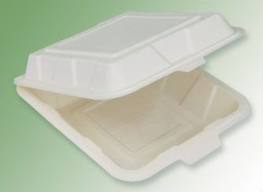Value of food-based plastics in today’s world
Sunday, October 30th, 2011 7:13:47 by M. Omer Iqbal bhatti
Value of food-based plastics in today’s world
Many years ago, food was used for one thing: eating. Today, it has a much more complicated role; scientists, manufacturers and policy makers are exploring whether food could one day eliminate our dependence on oil. Food-based fuels like ethanol and biodiesel
are increasingly replacing gasoline and diesel in our fuel tanks. Now, some think food can do the same thing to the plastics industry, helping to replace more than 900,000 barrels of oil and natural gas used to manufacture plastic in the United States daily.
Food-based plastics made out of everything from corn to sugarcane, have rapidly grown in popularity over the past several years. Packaging materials, gift cards, cell phone casings — all can be made from these eco-friendly materials. As the quality of food-based
plastics improves, they will have broader and broader applications.
Proponents cite two main advantages of food-based plastics over their petroleum-based counterparts. First, they’re made from a renewable resource. As long as farmers grow the crops these plastics are made out of, production can continue indefinitely. Second,
food-based plastics are widely considered to be easier on the environment. For instance, they require much less energy to produce than traditional plastics and release fewer greenhouse gases in the process. Better yet, they break down into harmless organic
compounds — in the right conditions.
What’s more, food-based plastics may not be as environmentally friendly as they appear. While they are biodegradable, most only break down under very specific conditions found in industrial composting plants. While food-based plastics can be recycled, they
can’t simply be mixed in with other recyclable plastics. In fact, the recycling industry considers food-based plastics a "contaminant" that takes time and money to process.
A final argument against food-based plastics is that generating them requires land and resources that could be going to producing actual food. Already, the U.S. Department of Agriculture (USDA) estimates that, by 2014, nearly a quarter of all grain production
will go toward making ethanol and other biofuels; if food-based plastics take off, that number could climb even higher. Environmentalists also worry about the harmful effects of the pesticides and genetically modified crop strains used to create some of these
plastics.
But don’t give up on food-based plastics yet. While they still represent less than 1 percent of the plastics market, some very large companies have committed to both improving and using the plastics moving forward. For instance, electronics manufacturers
Panasonic and NEC have both announced the development of food-based plastics with significantly improved durability, heat resistance and ease of production compared to products currently on the market.
Short URL: https://www.newspakistan.pk/?p=2071

















